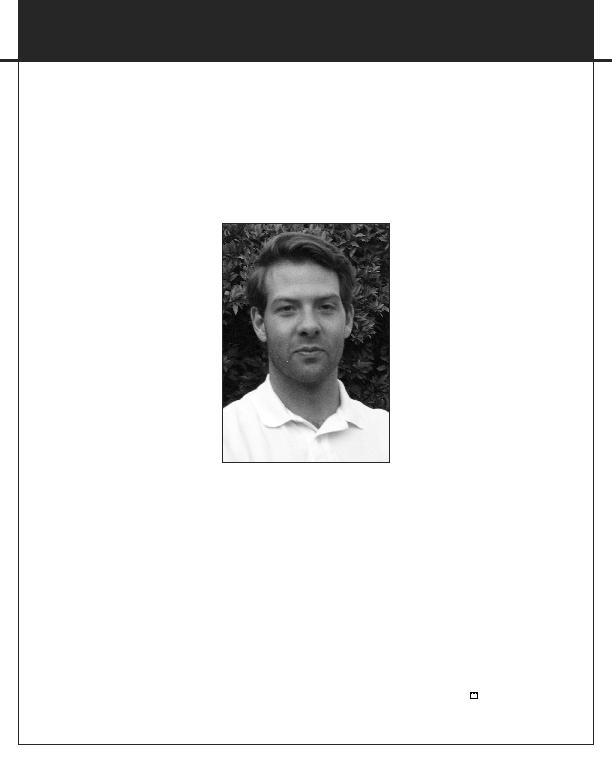
time, you may wonder if submitting your
script is worth your time, effort and money.
Mark Elliot Kratter would unequivocally an-
swer yes. On the heels of being a semi-
finalist in not only the Nicholl Fellowship
in Screenwriting but also a finalist in the
2009 AAA Screenplay Contest and a 2
Screenwriting Awards Contest, Kratter's
screenplay Endangered is now slated to be
co-financed and produced by Radar Pic-
tures, the company that produced last year's
The Box and the remakes of The Texas Chain-
saw Massacre and The Amityville Horror.
ford University, transitioned into Venture
Capital financing and securities trading be-
fore discovering the art of screenwriting in
2004 and decided to give it a shot. The first
script he wrote (based on an obscure Joseph
Conrad novel) was almost 130 pages long
and was written in a script format he created
after reading shooting scripts and trying to
imitate them in a homemade Word tem-
plate. Even he admits it was a disaster.
Inspired by a friend who'd had some success
writing a horror script, Kratter decided to
pursue the genre.
he felt was ready to show. But with no Hol-
lywood contacts, he determined screenplay
competitions were the way to go.
or placed highly in over a dozen contests and
landed him a manager who was as new to
the industry as Kratter was. Unfortunately,
the two weren't on the same page and ulti-
mately parted company.
write and submit new scripts to competitions,
which helped secure him Bettina Viviano of
lific writer, Kratter has written as many as four
to six scripts a year. This dedication, he says,
keeps him from focusing too much on the
outcome of any one specific script.
CineStory, Cinequest Screenwriting Compe-
tition and Acclaim Screenplay Competition,
among others. Where the Dead Go took the
Grand Prize in 2007's Fade In Awards.
tion company and a script-for-hire project for
Clark Peterson (who produced MONSTER
with Charlize Theron), his spec screenplay,
Endangered opened up additional opportuni-
ties around town.
prompted the premise of Endangered. The
script tells the story of an exploration into the
unique canopy ecosystem of the world's
largest trees. The explorers become trapped 40
stories above the ground and discover that, up
that high, they are the endangered species.
month," Kratter says. "It helped that I knew
the genre backwards and forwards through
years of research." His research skills and his
commitment to honing his craft paid off.
Endangered strike a chord with producers, but
he ventures a guess that the script is "the
same [as other scripts of the genre] but dif-
ferent in a very accessible, digestible way."
other scripts are garnering interest as well. He
has also started to secure new write-for-hire
gigs, including an adaptation of a graphic
novel for Stephen L'Heureux of Solipsist
Films, a producer of the Sin City franchise.
Kratter is taking meetings for several other
writing jobs, among them, two novel adap-
tations and a biopic.
encourages novice screenwriters to do the
same. He spends hours reading about every-
thing happening in the business every day
and consistently growing his network of in-
dustry contacts at every level.
screenwriting, Kratter offers this: "From my
perspective, contests are a great way for an
outsider, as I was, to build a network of peo-
ple within the industry by using those ac-
complishments to get managers, agents or
production companies to take a gamble on
reading [a new writer's] material. Legitimate
competitions offer talented new writers or
writers outside of the Hollywood system the
next best thing to a referral."
out, "It was a long haul with tons of ups and
downs, small successes here and there and
nonstop work."
www.breakthroughscripts.com